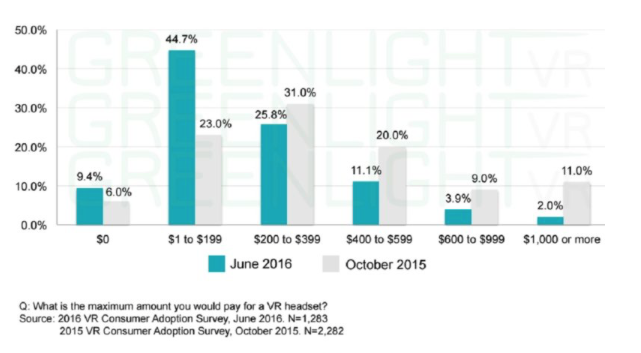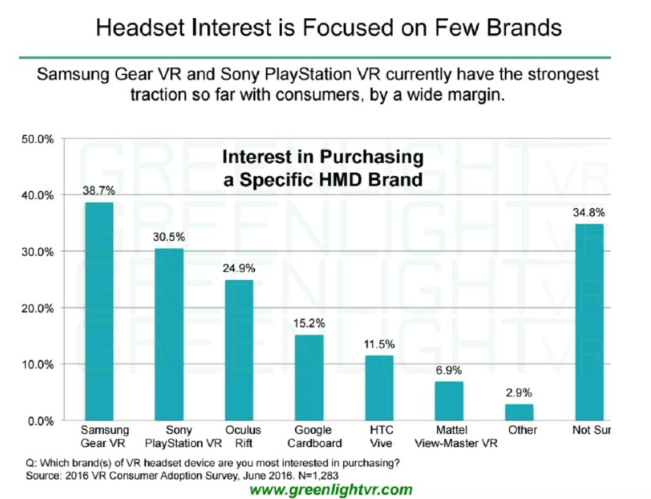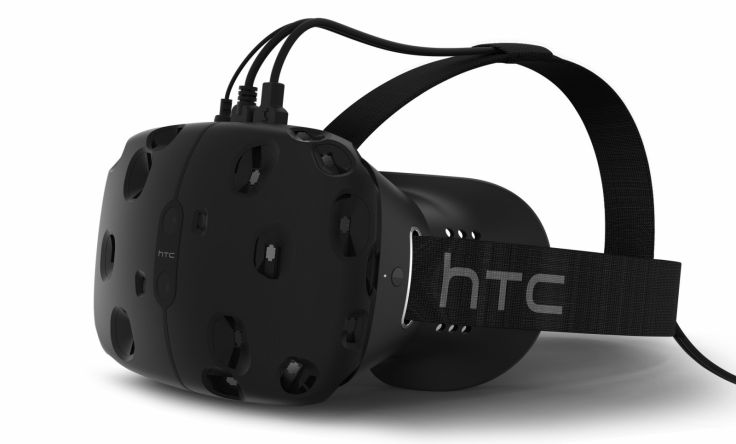If last week’s E3 is any indication, virtual reality is relying heavily on video game developers to create compelling content to help accelerate adoption of the technology. However, it’s capable of so much more, and consumers are aware of that.
A new report from Greenlight VR, titled “2016 Virtual Reality Consumer Adoption Report,” takes a closer look at these expectations, explaining how consumers want to explore other uses for VR, including travel, (non-gaming) entertainment, education and home design.
The first factor that the report discusses is price, as consumers aren’t so interested in paying a lot of money for virtual reality gear, compared to back in October. The most affordable choice for those polled is the Samsung Gear VR (retailing for $99), followed by the PlayStation VR (currently priced at $399).

While gaming is still a popular option among those getting VR (61 percent of those polled showed interest), it didn’t quite rank as high as other categories. Travel topped the list with a 73.5 percent interest, followed by movies/videos (67.3 percent), live events (67 percent), home design (65.9 percent) and education (63.9 percent).
As far as which headsets people want the most, the Samsung Gear VR ranked the highest at 38.7 percent, followed by PlayStation VR (30.5 percent) and Oculus Rift (24.9 percent). However, 34.8 percent noted that they aren’t sure which headset they want to go with yet, stating that most companies haven’t done a solid job in terms of explaining just what their headsets can do. This will likely change as devices like the Oculus Rift and HTC Vive get more widespread distribution and support.

“Virtual reality has always been more than a medium for gaming experiences and consumers understand that,” said Clifton Dawson, CEO of Greenlight VR, regarding the report. “Our findings from multiple studies suggest that some players in the VR ecosystem may be overly focused on gaming. The reality is that consumers have a wide variety of interests for using virtual reality. Platform and content providers would be wise to consider these bigger, richer findings as they develop their content portfolio and marketing strategies.”
The report also made note of the positive reception of virtual reality, with 86 percent noting they had a positive experience. “Overall, we were struck by the strongly positive and broad interest in VR in general, and in specific uses in particular,” said Steve Marshall, senior vice president of research and consulting for Greenlight VR. “Given all the attention in the press, we expected to find gaming as the primary consumer interest in VR. The reality is that consumers have a wide variety of interests for using VR—starting with travel and adventure.”

